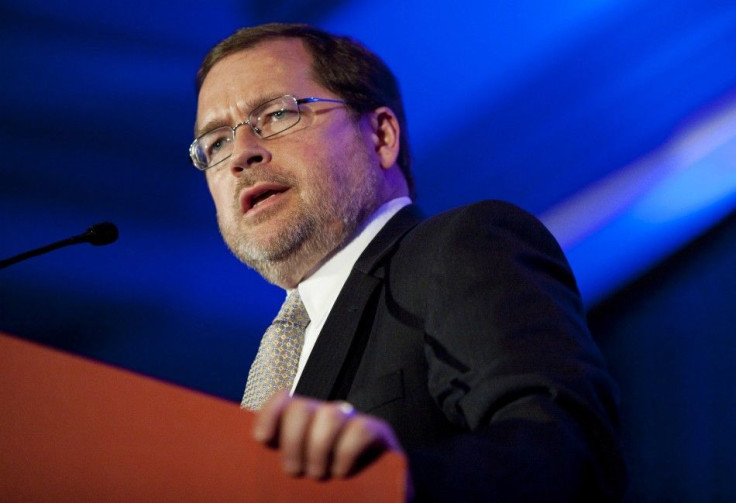A New Yorker's Opinion: How Occupy Wall Street Won and Grover Norquist Lost
Opinion

Richard Brodsky, a former 14-term New York State Assemblyman from Westchester and Senior Fellow at Demos, wrote about the profound impact Occupy Wall Street has had, in the Huffington Post on Dec 2. He notes that it has shifted the public conversation away from a focus on anti-tax sentiment and towards one of taxing the one percent. Something that New York State's legislative leaders of both parties are addressing now with its debate over the sunsetting of the so-called millionaires' tax. Just this past week Governor Andrew Cuomo signaled that his opposition to extending the tax to help cover the state budget deficit may be less total than it was in the past.
Brodsky is on point. Occupy Wall Street is the sharp tip of the spear, the Seal Team 6, that has driven the first hole in the unbroken line of Grover Norquist's famed anti-tax, pro-elite movement--and its so-called pledge. OWS has already done its work, already changed the public debate.
This points to the essential importance of such public narrative in our culture and society. It's never the facts, but always the story, that causes the great waves of change, the ever-shifting rise and fall of empires.
For the last 30 years or so there has been a dominating public narrative driven by the anti-tax Czar Norquist. That narrative, ever appealing--who wants to pay taxes?--held that government was no help to the middle class, but rather held it back.
The decades after WWII show pretty clearly the important role the GI Bill and other social welfare programs played in making the greatest generation the greatest. A large middle-class consumer society sprang from the bill that let them go to college and so get better jobs, buy homes at low interest rates and start businesses that grew our economy during that halcyon era. Together with Social Security and Medicare, which spared children the financially ruinous burden of being solely responsible for supporting aged, ill parents, you've got what the anti-tax narrative decries as socialism.
They are right, I confess. I am ashamed to admit it, but that is exactly, precisely what those invaluable programs were, and are still. But, frankly, is that really so bad?
Just a brief digression: Call me soft--I like a little security. Not just for me, but for my parents, friends, and even guys I don't know. Who wants to live in a world where people on your block are starving to death, dying of easily treatable diseases, and creating a daily parade of savagery and suffering you get to step around each day walking down that block? Not me.
In place of the anti-tax narrative that decries all such social programs, we now have a new OWS-inspired narrative--and a lot of folks are getting on board with it. As it is evolving, it holds that wealth imbalance has crippled the government. And that government is a partnership of middle-class citizens (the 99 percent). And in truth, it is more like the 99.9 percent (As Paul Krugman recently pointed out, it is really the 0.1 percent -- the top one-tenth of 1 percent -- not the 1 percent, who have half the assets and half the income.).
The OWS narrative falls firmly on the side of the public discourse that holds that good government is a collective effort that seeks to provide the best combination of opportunities for individual initiative and success, coupled with necessary safe-guards to provide tools that maximize all citizens' chances at financial success (like a college education and owning your own home). In addition, government needs to provide lightly regulated assurance that the playing field stays fair and balanced for all.
This ensures that con-men and hucksters do not steal the assets of both individuals and society. Steal, as in selling phony financial instruments designed to fail to pension plans we all depend on. Or make counterfeit parts for airplanes we fly in, for that matter. And few would, or should, argue against government having a robust role in oversight and punishment to protect us--and our markets and businesses--from such socially deviant and reprehensible behavior.
I must stress, at this point, that I'm not talking about all bankers and manufacturers. I like many of them--and have done good, honest business with them, too. Banking and business are essential to a successful economy and society. I'm referring only to the morally-bankrupt, dishonest bankers and manufacturers, whose behavior has outraged virtually all Americans.
Many are walking around free, and will continue to do so, because our laws weren't clever enough to keep up with them, but I like to think that most, if not all, of us agree that just because there's no specific law against something, doesn't make it honest--or right. That's another thing that OWS changed in the public narrative. And, let's face it, to support institutions that protect us from such activity, we all need to foot the bill. I like to think our narrative going forward will change to reflect that attitude toward honesty in the market place, and paying for it, too.
If you would really like to embrace the extreme anti-tax narrative that allegedly favors the so-called rugged individualist, and leaves the less fortunate to suffer on their own, all I can say is, please, feel free. You can find places like that all over the world. I've got a spot for you--no tax code, no social safety net, and no effective government--the one run by pirates in Somalia.
© Copyright IBTimes 2024. All rights reserved.





















